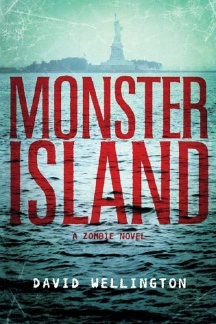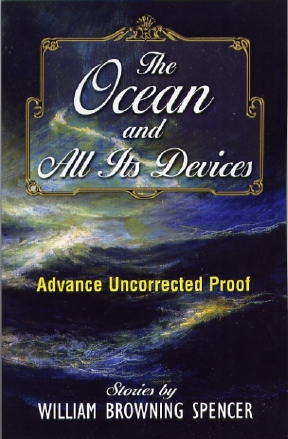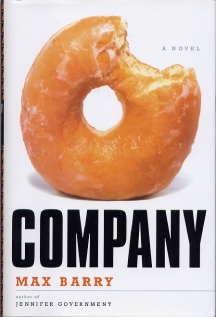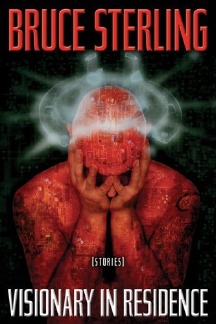|
|
|
This Just In...News from the Agony Column
|
02-03-06: Verlyn Klinkenborg's 'Timothy; or Notes of Abject Reptile' |
|||
Is
THIS a Sensation or What?
No, no, don’t run away! I promise, this isn’t that kind of book. Well, maybe it is that kind of book, but it's a different kind of that kind of book. It's a smarter, more literate kind of that kind of book. I mean. This is a book about a tortoise that uses semicolons. That's my kind of reptile, a note-taking abject sort. I can really identify with the main character here. That would be the titular Timothy, based, as you won’t often get a chance to say, on the adventures of a real-life tortoise also named Timothy. Apparently, and this might be common knowledge in other quarters but alas is not around here, eighteenth-century curate and naturalist Gilbert White, author of 1789 best-seller 'The Natural History and Antiquities of Selborne', had a tortoise. Timothy's shell, from which scientists have determined her sex to be female, is preserved in the Natural History Museum of London, where it's about to get a lot more visitors, I dare say. Klinkenborg has simply unearthed Timothy's voice to tell Timothy's story of an eight-day escape from the garden of White. This is a small book, a tiny book, that you'll read in a wonderfully pleasant afternoon, as soon as one arrives, or perhaps during a rainy day, since those seem to be in ample supply. (Well, depending on where you live.) It's short enough to run under the PS Publishing novella series, as the novel itself comes to a full stop at 158 pages, though it includes 20 pages of glossary. Klinkenborg even quotes White at the start of the Glossary: '"But without a glossary how should men know what the lorum of a Bird is!" Gilbert White to John White, 31 October 1777' Well, Verlyn, shock me. OK, it's "the space between the eye and the bill of a bird." Got it, good. So, Timothy escapes and regales us with his tale. And Klinkenborg regales us with his. Let me be quick to note that in the publishing world, Klinkenborg is the kind of guy who could walk into publishing houses and blow off the doors, X-Men style. He's a member of the editorial board of the New York Times who writes a regular column called A Rural Life (which is also a book). He's been published in The New Yorker, Harper's, Esquire and GQ. I think maybe he has walked into publishing offices and blown off the doors, X-Men style. I can't imagine that the pitch for this book ("A tale told by a turtle owned by an Eighteenth century naturalist") would set pens on fire. But then, with the heavy trend towards non-fiction and YA fiction, here's a title that is both. It's the kind of thing that you could read and enjoy, and when your teenager shows up desperate for a book to read and write a report on, well, this might quite do the trick. Plus, you'd be able to tell if the kid had read the book. That's a BIG plus. But the bottom line here is as ever, in the prose. Pick up this book, start on page one and chances are you'll have read too many to send it back before you’re able to put the book down. 'Timothy' is every bit as charming as you might hope, and heck, the price for the hardcover is not much more than you’re paying for some trade paperbacks by writers who would happily throw themselves in front of a truck to get published in The New Yorker. The downside is that even though this is a tale told by a tortoise, the story does not move slowly, and you will read it quickly. Which just means you'll be able to loan it out to the friends you'll inevitably tell about it that much sooner. My guess is that if you identify with an abject reptile, chances are that you hang out some abject reptiles as well. |
|
02-02-06: Welcome to 'Monster Island' by David Wellington |
|||
From
the Internet to Your Bookstore
AAAGH! Help. Must. Not. Succumb. Get. Out. Revolver. KILL THAT BLURB. KILL IT RICK! [Sounds of a scuffle chez Kleffel. Two shots ring out. Is he...?] Steady on there. OK, I feel better. I was about to use a two-word phrase (highlight it if you must read it, but prepare to have your brain blasted) to describe this novel that will be used so often and so freely that it will acquire it's own gravity, a gravity that will eventually grow to consume THE ENTIRE UNIVERSE. And this is only the second SF&F novel* that I've seen to make the journey, to struggle outward from the spawning grounds of the Internet, to climb onto the island of actual dead-tree publishing, gasping for air. *[The first being John Scalzi's 'Agent to the Stars'. Buy it from Subterranean Press, even though I digress.] David Wellington has learned to breathe. A nice looking blog page will apparently do that for you, and the will to write an extremely gory zombie novel will help. So, back to the beginning. David Wellington has been publishing this blog page for quite a while, and it's been getting rave reviews from some incendiarily hot blogs like Boingboing.net. (Always remember that this started as a paper magazine folks. It wasn't a virgin birth.) You can read Wellington's trilogy (a word that has created such a great gravity well that it has trapped entire civilizations, including, at the core of this pocket universe, a bunch of furry-footed midgets, apparently) online. And having done so, you can donate your pixilated eyeballs to my Cabinet of Curiosities. OR. You can wait a couple of months, shell out some what, in Santa Cruz, California, at least, a touch over fifteen bucks, and get a nice sturdy trade paperback novel about zombies taking over Manhattan, which will be perfect reading fare for you while you chomp on that carnitas burrito at Tacos Moreno. Tear at the cooked flesh while you read about the tearing of uncooked flesh. Oh the joy! Should you deign a preview of what you'll be getting with your extra-meat/no beans delight, pop on over to Wellington's blog. And do so anyway, just so that he can stack up a few extra hits courtesy of TAC. He deserves 'em, and his book deserves your money, that is, assuming that you enjoy the delights of reading about tearing flesh while devouring it yourself. Or, as it were, devouring a veggie burrito. Hmmm. I wonder. There must be vegetarian zombie novel and movie fans, right? So. To the book. 'Monster Island'. David Wellington, the author, is in his spare time, a UN Archivist. Uh-oh. Do you hear 'Black Helicopters Over America'? I do. So. In his spare time, when he's not running the planet and driving us towards heathen socialism, Wellington has been writing these novels. This is the first. And it makes sense. Zombies are natural socialists, they're natural one-worlders. Maybe at its core, the UN is already being run by zombies. Heck, I know folks who might not be surprised to find that out. If you want to take a trip to 'Monster Island', you know the drill. Global disaster, zombies take over, end of the human race. Except, apparently in those place where folks are extremely well-armed, like Somalia (shades of when he started writing the novel, I suspect; but even this article is science fiction, so you know, I may be wrong, I'll let Smoking Gun out me, OK? Just do so after my Oprah appearance). Some plucky survivors (damn, one of those word-zombies almost got in) head out from lovely Somalia and over to you guessed it, Monster Island. Where they’re likely to meet up with a "zombie with a heart of gold," or at least a self-aware zombie. Splatterworks ensue. Rotting bodies, tearing flesh, you can check out the gore-level online to see if it meets or exceeds your specs. I liked what I read, but I got to do it the old-fashioned way, with my eyeballs staring at paper, while tiny drops of coffee spattered the pages. Oh I love a good book, and not the least because they're just...books. A very beautiful thing, full of words, don’t you know it. I remember , back in the day, before the publishers charged you to print out your own. Now THIS is a horror story. It's the near future, and fab-tech has hit bigtime. You know, sort of super-printers. Not only is Kodak something you have to look up in Wikipedia. Books as WE KNOW THEM are rapidly becoming extinct. No more stacks for you, Kleffel. You buy a book online, you get the right to print it out and read it once. DRM tracks your eyeballs as you read. Once you complete the book, it erases itself and you have to throw it back in the recycling bin for your fab-tech. You think the publishers aren't slavering over this MP3-ization of books? Or you'll just download it into you sheet of e-paper which will hold libraries. Kill me now, before this happens please. I don’t want to become an e-book zombie. I'm going to be the VAN HELSING of e-book zombies, haunting Monster Island with a flashlight which I snap on into unsuspecting eyeballs, checking for pixilation. My gun will fire ex-libris copies of Moby Dick, the book that NOBODY wanted to read. Stop going on about whales, Melville. Get back to your job as a clerk. Forget about it! Oprah does not want the author of a whale-murdering novel. Try writing about something you know about, you know, the old "write what you know" advice? Yeah, try writing about clerks, fercrissakes. What's that? What did you say? Oh, I see, I geddit. "I'd prefer not to." |
|
02-01-06: William Browning Spencer's 'The Ocean and All It's Devices' |
|||
The
Short Story and All Its Devotees
And yes, I do consider this column my job, something I get up early for and dress for and attend every day of the week on a regular basis, never letting up, just trying to focus on the books, the writing, and keeping readers informed of what’s out there that might be worth their valuable time. Because books, unlike other forms of entertainment, demand more from the customer, from the audience, one needs must choose wisely, choose carefully, pay attention and make sure one gets the maximum reward from any investment. So here we are again. It's 4:56 AM, pitch black and ice-cold. The "a", "s" and "e" keys on my laptop, not even three years old, are completely worn away. I'm looking at stacks of books, exceeded only by stacks of bills. I work -- for free, of course -- for KUSP, and three of us who interview are all interested in interviewing the same two authors. If I have a hat, it's large, concrete and sports the legend: ACME BLOCKS, 40 TONS. Here comes my writing-about-books hat, folks. I love the sound of falling concrete in the morning. If I sound a bit wistful, well, it's because I just read William Spencer Browning's gorgeously written introduction to 'The Ocean and All Its Devices' (Subterranean Press ; June 1, 2006 ; $40). Spencer would be one of latter types of authors I mentioned above. The sniper type. In the, what the hell is it, four years -- yes, I just checked, four years -- that I've been writing about books for this website (first column published January 22, 2002), I've not had the pleasure of reviewing officially one of his books. Oh, I've mentioned him now and again, most recently yesterday. But now here's the chance to get a bit expansive, and I only need deal with the introduction here, because, I'm going to let Spencer's stories speak for themselves. But if you've ever written a single word with the idea that it was going to be read by someone else who cared, you should run, not walk, over to the Sub Press website and buy this book. First, let me at least mention "fun facts" about the stories within. Many of these were award nominees or winners, for what that's worth, and it varies from award to award. I've said my piece on awards, and I'm not going to revisit it here. Suffice it to say that Spencer has the gravity of Rod Serling. He draws together, well, everything, with an imagination that seems so natural, so organic, the imaginative elements don't seem imagined. They are real. He also manages to find the humor in life, in his stories, to evoke the laughter that lies in wait around every corner for a certain, select minority to whom life seems to serve itself up in X-ray vision. Spencer has those X-Ray specs, can't take 'em off. Which is why the introduction to this collection is so powerful, so funny and so cuts to the core. With any great writer, the bottom line is that you, the reader, are going to be reading a series of sentences. Well, I hope in general that's the case, though this may not apply to poets. And so, it gets down to that level. The sentence-by-sentence level. At that level, Spencer delivers sentence after sentence of great writing, even in the introduction. This is no, "Here are my stories and a bit about me," introduction. This is a powerful piece of writing about writing. "TV," Spencer writes, "is such a friend to the weary; it doesn't ask much, and, like a ne'er-do-well uncle, it has lost its capacity to disappoint." Did I mention he's funny? Yes, Spencer is funny even when he's being poignant. Since you won’t be able to lay your hands on this until June, here's a tip. Hie yourself hence to an independent bookseller in your home town, or a fine fellow on the Internet, say, Mark V. Ziesing. I haven’t plugged him, recently, have I? Well, there you go Mark. You tell that fellow, or gal, to go fetch you 'Resume With Monsters', 'Zod Wallop', 'Irrational Fears' and 'The Return of Count Electric'. This of course presumes that you don’t have them hanging about on your bookshelves. And if you do, and you don’t have first editions, maybe now is the time to spring for them. Treat yourself. I guaran-effing-tee that you will enjoy these novels/collections, assuming of course that they sound to you as if they’re the sort of thing you might like. (I recognize that readers here have variety, a spectrum of tastes. Spencer's stuff includes some speculative/imaginative elements and if these give you hives, well, you might not want to read them. But still, seriously, even if that is the case, Spencer might cure you of this phobia.) Today, I'm particularly fond of 'Irrational Fears', Spencer's take on the twelve-step movement. No doubt that's because James Frey is on my mind, and for what it's worth, today at least, I'm saying he should blame his problems with the truth (and substance abuse) on Lovecraftian entities that long ago mated with humans to produce a hybrid race. I think that would go over real well on Oprah. I think a lot of things, most of them concerning the speed with which checks are cashed and the rapidly-arriving checkless, cashless economy that will render me even more cashless than I already am. Most of the things I think are placed in my brain by Lovecraftian entities from a nameless netherworld. Wait a second, I like the sound of that. "Most of the things I think are placed in my brain by Lovecraftian entities from a nameless netherworld. " Good, very good. Today on Dr. Phil: "Most of the things I think are placed in my brain by Lovecraftian entities from a nameless netherworld. " Maybe it's time to start reading again, instead of writing. I sense a feeling of completion. Or is that just a headache? Time to seek a sentence-by-sentence cure! |
|
01-31-06: Max Barry at Work for the 'Company' |
||||||
Close
Enough For 'Jennifer Government' Specs
And damn if I probably would be a pretty good fit to work for 'Company' if I wasn't lucky enough to be able to read about it. But then, I suspect that most of us have worked for 'The Company' at one time or another, and there's the appeal of this novel. The story here is not unexpected. "Jones" works for Zephyr Holdings, where, we are told, nobody has seen the CEO. It's an ordinary large-but-not-too-large corporation, the kind all of us have worked for at one time or another. I'd say all of my last three jobs were for outfits that could have been 'The Company', from the blood factory to the stock market quote vendor to the electronics firm. In each of them I was clued in enough to understand that there were things I would never understand about how and why the corporate Powers That Be made Decisions. So long as the check cleared every two weeks, I was pretty OK. Sure, you can rage, you can whinge, you can say "--- it all!" and go on a binge. But in the end, you just get through work one day at a time, without ever really trying to construct a logical story as to what your company actually does. And if you do, you're likely to come up with something rather dull. Unless you're Jones, working at Zephyr. As Barry's character plunges fearlessly and foolishly forward, he makes the serious mistake of trying to figure out what exactly it is that Zephyr does. And that could be very bad for his resume.
I'm guessing that a pretty large percentage of my readers, were they to pick up 'The Company' and page through it, would take it home with them. In spite of the rather unappetizing cover. Once again, folks in marketing. Maybe ask Max, but then if you did, maybe not. To my mind, the very attractive elevator panel inside the book would have made a better cover. Maybe some art director was hungry. Of course, the novel does have the irresistible-as-a-fresh-glazed-donut opening line: "Monday morning and there's one less donut than there should be." So at least that cover is not inexplicable, but then, maybe it should be. The Company, that is Zephyr, is on the inexplicable side, and for me that's one of the great appeals of this novel for the Dilbert set. It looks to combine a sense of corporate-angst humor with a sort of Sfnal feel, making it the sort of no-man's-land fiction that I personally love. Barry dedicates the novel to Hewlett-Packard, where he evidently spent enough time to get a feel for the anonymous life of a corporate cubicle drone. So much so, that although he's a full-time writer, he claims that he "enforces a strict dress policy, requires that his desk be kept tidy at all times and asks that he limit personal calls to less than two minutes." OK, I'll cop to it. I enforce a strict dress policy upon myself, and an attendance policy, even though in large part, I, uh, sort of, don’t get paid. (Say that last phrase really, really fast.) Well, I do pull in donut money with the odd book review now and again. But perhaps I should start developing a Mission Statement, no? |
|
01-30-06: Bruce Sterling is the 'Visionary in Residence; A Conversation with Bill McKibben |
|||
New Twists of the Mind
I'm a novel hound, so I was pumping for that selection, but I'm pleased that anything comes down the pike and this short story collection from the innovative Avalon imprint looks pretty damn delectable. So, two, no three things about this collection, then off to the beyond. The first thing about this collection is that you can rest assured that somewhere in here is one of those stories that you will never forget, and in fact, that daily headlines in the future will cause it to return regularly to your tiny mind, like it or not. I offer as an example 'The Compassionate, the Digital' from 'Globalhead'. Now that we're engaged in a fight for peace and a war without end, the Islamic religion is on our minds and in our newspapers on a daily basis. And every time I see or hear any mention of Islam, alas, all my mind can do is to snap to my indelible memory of reading Sterling's story about an Islamic artificial intelligence. That's it, that's all she wrote, no matter what happens in the real world, my mental image of the real world has is focused through the lens of Sterling's savagely logical story. 'The Compassionate, The Digital' is not a long story, nor is it in any way normal. It's a printout of the first announcement of the Islamic AI. It's utterly perfect, a diamond of a story that cuts through my brain and information that goes into that brain. I'll never forget it, I don’t want to forget it, end of story. Thing number two would be the inclusion of 'The Blemmye's Strategem' in this collection, which I first read in F&SF. I frankly did not know what to expect, and what I read was a story nobody could possibly expect. NOBODY EXPECTS THE BLEMMYE's STRATAGEM. It's the kind of story that is a blistering example of imagination, of writing skill, of limitless hubris and a willingness, no a determination to ignore all precedents and charge mindlessly, madly into the desert. There's not too much that can prepare you for this story, even in the rest of Sterling's writing. That's what got me. You know, you read a lot of stuff by a writer, and you can get to thinking that you have a pretty good idea of what you're going to get when you read a short story by that writer, even if he's as unpredictable as Sterling. And I know how unpredictable the guy can be. See above! Still, caught me unawares, threw me for a loop and entertained the living heck out of me. Got me to pop for another couple of years of the magazine as well. Editors, remember this when Sterling sends you something. But his reputation is so unassailable, he's probably thinking about grocery lists. In fact if anyone could publish a grocery list and have it be pithy and entertaining, it's Sterling. OK, Bruce, I'm throwing down the gauntlet. Give us your grocery list story! (Unless there's already one out there I'm unaware of, and that may in fact be the case.) Finally, there's this. Last week I was writing about the latest Larry Niven collection, 'The Draco Tavern', which is a top-notch effort, a collection of short-shorts set in a the traditional SF bar. And I wrote about the SF clichés that made a setup like that run, including the good old universal translator. Leave it to Sterling to blow my increasingly shrinking brain by firing off this book with a story about, you guessed it, a universal translator. From his introduction to 'In Paradise': "We'll start nice and simple, with a story that couldn’t be more traditional in its SF thematics. A real-time voice-translation device is one of the hoariest gizmos in the eight-year-old arsenal of popular science fiction. It's nevertheless an idea brimming over with fresh possibilities. Here: just look at the mileage one can wring out of a conceit like that." That's it in a nutshell. Sterling makes every thing old, even old stuff in new science fiction, new again. That's what a great writer does, and that's why, when you see a book by Bruce Sterling titled 'Visionary in Residence', your first thought is: "Yeah, he got that right." |
|||
Science Fiction, The Future and Global Warming
I wanted to talk to McKibben about the role of science fiction in our understanding of science, which was a subject he's thought about a lot and in which, he's very well-versed. Readers looking to get a great set of unusual insights into the genre, into science and into how all these help shape both our world and our vision of our world. McKibben covers some of this in 'Enough', a book that is a must-read for those who want to read or write science fiction. McKibben is the kind of science writer who should have a great deal of appeal to science fiction readers. His perspective is distinctly SFnal, and his writing has the kind of clarity that insight that one finds in well, Bruce Sterling for example. I can't say that I'm sorry to put even more books into your reading queue, especially when they're of this caliber. Do yourself a favor and get 'Enough' or 'Wandering' before you listen, so that you don’t find yourself late to work because you had to stop and buy them on your way to work. And don’t plan on getting a lot of work done, either, unless your job involves having your mind boggled. And if it does, let me know, that's a job I'd like to have. |






